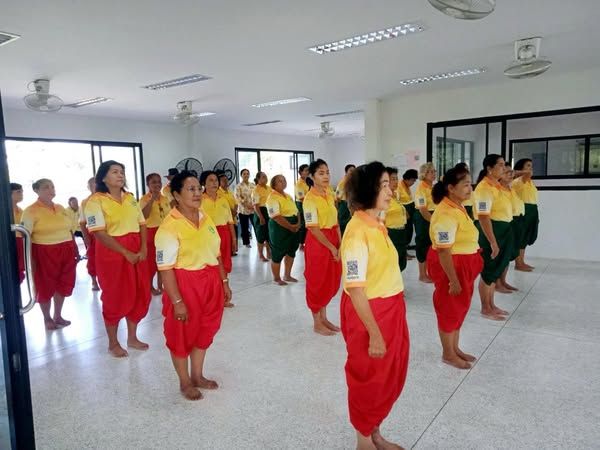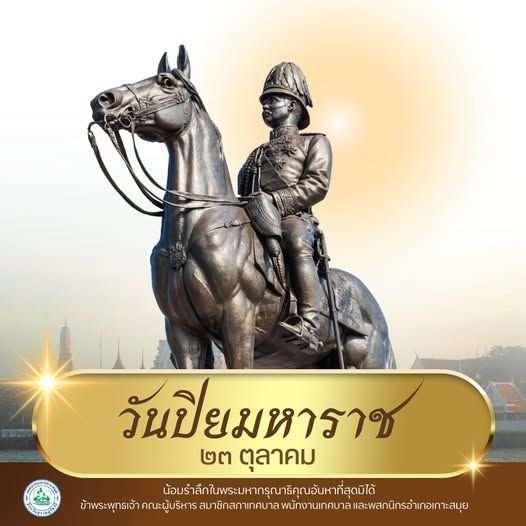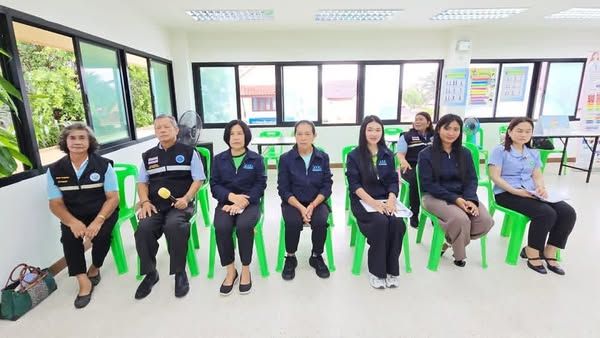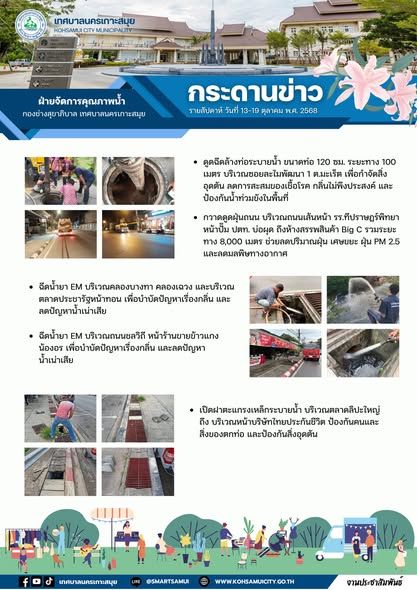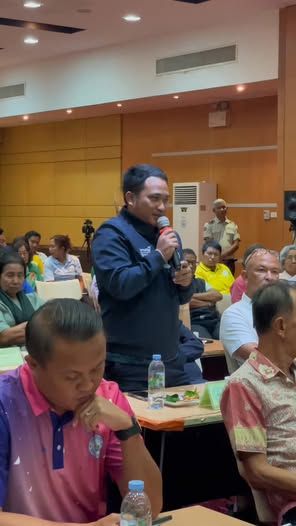Ko Samui has revolutionized senior fitness by transforming the traditional Manorah dance into a gentle, engaging exercise program for local seniors. The innovative initiative, launched by the Lipa Noi Subdistrict Elderly Club and Ko Samui Municipality Health Security Fund, beautifully demonstrates how cultural heritage can inspire enjoyable and meaningful physical activity.
KoSamui #SeniorFitness #ThaiCulture #HealthyAging #ManohrahDance #ActiveSeniors #WellnessTourism #ThailandTravel #CulturalHeritage #HealthyLifestyle
Background and Objective
On March 8, 2025, the Lipa Noi Subdistrict Elderly Club, in collaboration with the Ko Samui Municipality Health Security Fund, launched a project aimed at promoting physical well-being among the elderly. This initiative was held at the Ko Samui District Senior Welfare Center and sought to encourage active lifestyles while embracing local Thai cultural traditions.
Event Details and Participant Involvement
The event commenced at 9:00 AM, with Mr. Jakarin Promko, President of the Ko Samui Municipality Council, participating in the proceedings. Dr. Nisa Limsuwan presided over the opening ceremony, which was attended by municipal council members, representatives from the Health Security Fund committee, public health staff, and elderly participants from the Lipa Noi subdistrict. The project focused on a core group of 30 senior citizens who regularly engage with the Elderly Club.
Project Support and Funding
Financial and organizational support for the exercise project was provided by the Ko Samui Municipality Health Security Fund. The fund’s aim is to enhance the health and quality of life for local senior residents by integrating accessible and culturally relevant health promotion activities into the community setting.
Thai-Style Exercise Program: Adapting Manorah Dance
The exercise routines presented in the project were inspired by the traditional Manorah dance, a form of performing art deeply rooted in southern Thai culture. In this adaptation for seniors, Manorah dance movements were modified to become gentle, low-impact exercises. The routines incorporated Manorah music, helping to create an engaging and enjoyable environment for participants.
Key Features of the Exercise Routine
- Full-Body Engagement: The adapted movements targeted various parts of the body, including arms, legs, and the core, ensuring a comprehensive workout.
- Finger and Joint Flexibility: Particular emphasis was placed on finger stretching exercises, which are beneficial for reducing the risk of joint stiffness and managing “trigger finger,” a condition prevalent among older adults.
- Cultural Connection: By utilizing music and movement rooted in local tradition, the program fostered a sense of community and pride in cultural heritage.
Broader Context: Elderly Health and Well-Being in Thailand
Thailand has an increasingly aging population, with more community-based initiatives being introduced to address the health needs of seniors. Exercise programs tailored for older adults help maintain mobility, prevent chronic disease, and reduce feelings of isolation. By incorporating traditional elements, these activities also support mental wellness and cultural continuity.
Community and Institutional Collaboration
The success of the Thai-style exercise program in Lipa Noi Subdistrict was made possible through the collaboration of multiple stakeholders, including local government bodies, public health officials, and community clubs. This partnership model demonstrates the importance of joint efforts in developing sustainable health promotion activities for the elderly.
Future Directions for Senior Health Promotion
Programs that bridge traditional practices with modern health guidance can serve as models for other municipalities seeking to empower their elderly populations. The integration of culturally resonant physical activities not only supports physical fitness but also strengthens communal bonds and preserves intangible cultural heritage.
Frequently Asked Questions
Frequently Asked Questions (FAQ)
How does the Thai-Style Exercise Initiative for seniors incorporate local culture into physical activity?
The exercise initiative in Lipa Noi Subdistrict adapts the traditional Manorah dance—a performing art deeply rooted in southern Thai culture—into gentle, low-impact exercises specifically designed for seniors. By modifying Manorah dance movements and incorporating traditional music, the program offers participants a fun, culturally meaningful way to stay active while fostering pride and connection to their heritage.
What specific health benefits does the adapted Manorah dance program provide for elderly participants?
The Thai-style exercise routine focuses on full-body engagement and emphasizes flexibility, especially in the fingers and joints. This is particularly beneficial for reducing the risk of joint stiffness and managing conditions such as “trigger finger,” which is common among older adults. Beyond physical health, the program also helps combat isolation and supports mental well-being by creating a sense of community among seniors.
Who supports and organizes the Thai-style senior exercise program, and how does this model benefit the community?
The program is a collaborative effort between the Lipa Noi Subdistrict Elderly Club and the Ko Samui Municipality Health Security Fund, with participation from local government officials, health staff, and community members. This partnership model ensures financial and organizational support, making the program accessible and sustainable. Such cooperation demonstrates how community and institutional collaboration can successfully promote elderly health, preserve cultural heritage, and strengthen communal bonds.
